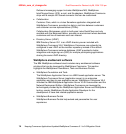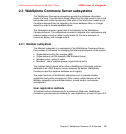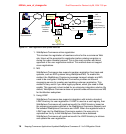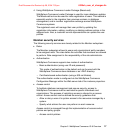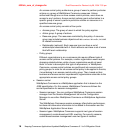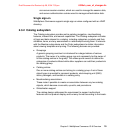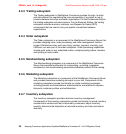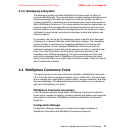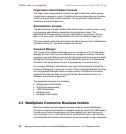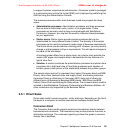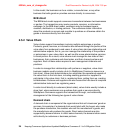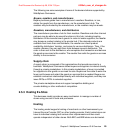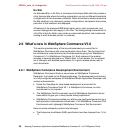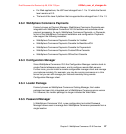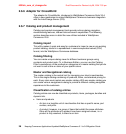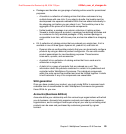6320ch_sum_of_changes.fm Draft Document for Review July 28, 2004 7:33 pm
22 Keeping Commerce Applications Updated WebSphere Commerce 5.1 to 5.6 Migration Guide
Organization Administration Console
The Organization Administration Console is used to administer users, groups,
organizations, approvals, stores (if multiple stores are allowed by your business
model) and associated security elements. The Organization Administration
Console is a browser based tool.
Administration Console
The Administration Console allows a Site Administrator to control a site or store
by completing administrative operations and configuration tasks. The
Administration Console allows complete administrative operations at the site
level or the store level. The Administration Console is a browser based tool.
The store publish functionality provided by the Store Services Tool in WebSphere
Commerce Suite V5.1 has been merged into this tool.
Password Manager
The Configuration Password Manager tool is an extension of the Configuration
Manager to meet strict corporate standards to manage an instance. It enables
individual users with different roles to enter their passwords to be used in a single
WebSphere Commerce instance. This eliminates the need for the WebSphere
Commerce site administrator to know the passwords for individual users.
For example, Database Administrators can enter their passwords through the
Password Manager for a particular instance. When a Site Administrator launches
the Configuration Manager instance creation wizard, WebSphere Commerce
populates the field and does not prompt the Site Administrator to enter the
Database Administrator's password.
The supported role types are as follows:
Collaboration Administrator
QuickPlace Administrator
LDAP Administrator
Database User
Database Administrator
2.5 WebSphere Commerce Business models
Business models represent sample business scenarios where WebSphere
Commerce may be implemented. A business model provided within WebSphere
Commerce includes an organization structure, default user roles and access
control policies, one or more starter stores, administration tools, and business
processes that demonstrate best practices. A business model can be customized



